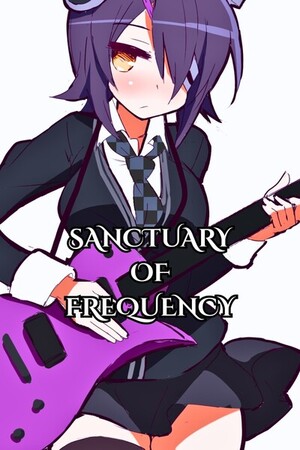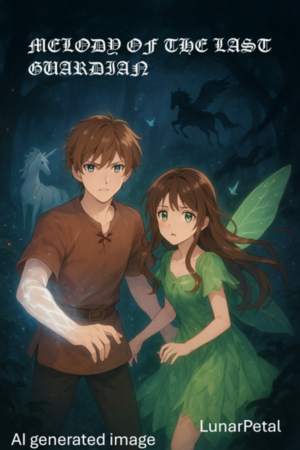Chapter 3:
A Lesson in Distraction
The Bard
Circle the wagons, link your arms, spin your partner and whisper charms. The music lively, golden ale flows, invite the townsfolk, so our troupe grows. Tonight we dance, tomorrow we’re gone, awake too late, and up at dawn. To see the world and hear every story, thus is our birthright as bards of glory.
-Excerpt from “Travails of the Troupe”
A yawn escaped my lips as I stalked into the tavern I’d called home for nearly a month. The day’s busking had not yielded the fruit I hoped for—barely three copper, not even enough for a hot meal. It was my last night in the Royal Capital, and it seemed it could not come at a better time. Everyone is so stingy this late into autumn.
I still had one final obligation to fulfill, so I waved down the barkeep. He caught my eye, and shuffled toward me, weaving between unruly patrons.
“I have an hour in me, at most,” I said, touching the lute case at my hip.
“Aye, that’s fine,” Jean responded with a curt nod. “Honestly, I’ll be sad to see you go. We haven’t done business like this since the summer festival.”
I grinned and clapped the man on the shoulder, then laughed. “And you won’t again. No one draws a crowd like I do, eh?”
“It’s true,” he said. “I still don’t understand why you won’t settle down somewhere. Plenty of fair ladies have been giving you eyes, y’know.” He gave me a knowing smile and wink, nudging my ribs with his elbow.
“I suspect they have, but I haven’t the constitution for sedentary life, I’m afraid.”
“Well regardless, there’ll be a meal and a bed for you here anytime,” the barkeep said, holding out his hand. I grasped it, and he shook once. “Do come back sometime, yeah?”
“Mayhaps I shall, mayhaps.”
A young woman in a barmaid’s garb shouted something, and the barkeep turned to see what was happening. His face went from impassive to red with anger in a flash, and he huffed in irritation.
“I’m sorry, I have to go tend to another matter. It seems some of the customers have mistaken this as a house of ill-repute,” he said, and stamped his way toward a group of loutish men busy harassing the poor girl.
I occupied myself scanning the crowd. There were a lot of familiar faces, and some I did not recognize. Two men diced in the far corner, whiling away their time and money between drinks. A handsome young man chatted up an older woman at the fringes of the crowd, clearly trying—and failing—to coax her away, somewhere quieter. A lone woman, haggard bags under her eyes, sat at an empty table, staring holes into her mug and ignoring everyone else. My eyes lingered on her a moment longer than the rest, before I put her out of my mind.
As I walked through the crowded bar, I listened. It was a skill I picked up mostly by accident, but it came in handy for ferreting out the hidden stories of the world. It may surprise you what whispered secrets are left to hang in the air between confidants if only you could open your ears and listen. I caught murmured snatches of a half dozen insignificant tales, but nothing piqued my interest.
With the grace of a cat, I wended my way through the throng until I was at the bar. I pulled a stool out, and without a word, sat down and began tuning my lute. It was difficult work, getting the finer details correct in such a raucous environment, but I was practiced and efficient. As I fiddled with the knobs, the patrons around me began to take notice, and like the sea at high tide, their attention flowed toward me.
I struck an experimental note, nodded to myself, and then closed my eyes. My heart beat like a drum in my ears, and I took a deep breath to steady myself. Despite three years of daily performing, my gut still twisted itself with nerves each time I took to the stage.
I plucked the first chord and the crowd went silent, and with that, my nervousness vanished. Now it was only me and my lute. My fingers danced across the strings, slowly at first, as if I were seducing the music out with a careful touch. I increased the pace, and within the span of three breaths, the soft music had become a lively dance song, sweeping over everyone with frantic energy.
I first heard that song in a tavern, not unlike the one I played in now. That version had been accompanied by a young woman, her crystalline voice a counterpoint to the hectic music. But my rendition had no such presence—it was chaotic and brash, the perfect opener for a drunk crowd.
I glanced up, memorizing the positions of three dozen dancers and drinkers alike in a flash, then resumed watching my hands. I channeled a tiny stream of wind magic, breaking the flow into a commiserate number of threads, then directed each one to a different person. My magic control was impeccable, but it took almost all my concentration to keep the magic and music working in sync. Then, I began to sing.
My voice was not the brassy kind you encounter among wayward jongleurs, it was a rich and powerful baritone more suited to court song than shanties. I glanced up again, scanning the crowd to gauge their engagement. The people danced, laughed, and made merry. All but one woman.
The worn-looking woman who had been glaring at her ale still sat in the same place, but her mug was on its side and golden liquid spilled across her lap. Our eyes met for the briefest of moments, and I felt my heart hammer once in my chest. My fingers slipped, dropping a note, and I squeezed my eyes shut to refocus.
Back on track, I chanced a second peek, this one more furtive than the first. She was young, a few years my junior at least, with long blonde hair and a button nose. Clad in the ostentatious livery of a noble house, she stood out like a rose among a weed bed. She held herself like a noblewoman despite her clothing, all regal grace and patience, and I felt certain she must be a lady-in-waiting. For some reason, I found her fascinating—perhaps it was the juxtaposition of her solitary awkwardness and noble bearing or the fact that she seemed so out of place among the rabble. My fingers slipped again, and I silently cursed my distractedness. You can talk to her after you’re done, idiot.
I meandered through my performance, pulling the listeners along with me. First was the dance song, followed by a song I had learned from an acquaintance who happened to be a court bard, though I’d modified the tempo to make it livelier. Primed by the previous tune, I then slipped into a slower ballad and finally ended with the same song I had played the night before. I looked up, catching the eye of the barmaid who had cried the night before, and winked. She flushed a light pink and smiled, turning her face aside in embarrassment.
As I struck the final note, I looked toward the blonde woman once more. She had a fresh mug of ale in her hands, and on the table sat a soaked-through rag, the evidence of her mishap. Her gaze rested firmly on me, and I caught a glimmer of interest behind her deep blue eyes.
With careful consideration, I packed my lute away—this time more carefully than I had done in weeks. It needed to be secure in its case, as I would soon be on the road again and prolonged jostling threatened to damage my livelihood.
Once it was secure, I took a calming breath and stood, making my way towards the young woman who had held my interest all evening, and toward a future I could not have imagined.




Please sign in to leave a comment.